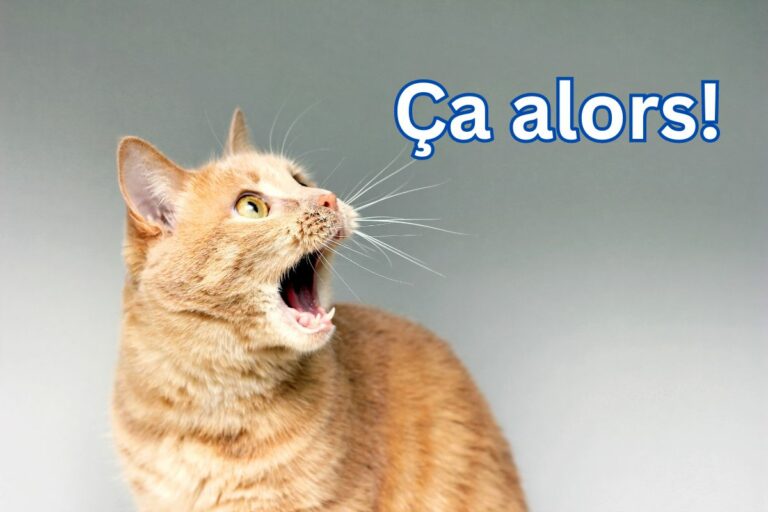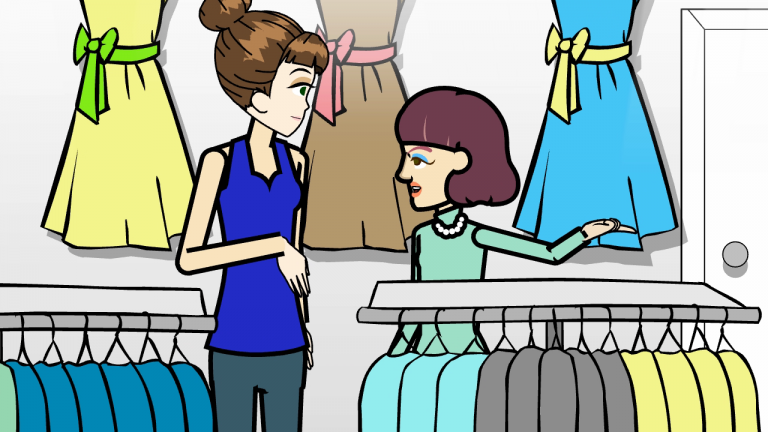14 Ways to Say “I Miss You” in French (That French People Actually Use)
In a recent post, we took a look at phrases and expressions for expressing love in spoken French. That post discusses everything you need to know about crushes, dating, relationships, and even rejection.
On a different note, suppose you have a French boyfriend or girlfriend, or even a very close friend, who has gone on a long trip or just moved away.
In French, there are many ways to express the feeling of missing a person, talking to the person herself. Let's look at some of those phrases.
Tu me manques
The most obvious way of saying "I miss you" in French is "tu me manques". Note that, contrary to the English version, the French phrase starts with "you" and ends with "I". It's like saying "you're lacking to me".
Tu me manques depuis que tu es partie !
Possible response : toi aussi, tu me manques.
Tu reviens quand ?
This can be an indirect way of letting someone know you miss them :
Dis, tu reviens quand ? (when are you coming back ?)
Très bientôt, je te le promets. (very soon I promise !)
Je voudrais que tu sois là
This phrase indicates you're longing for the person, and wish they were here at you side.
Je voudrais que tu sois là.
A possible answer might be : moi aussi je voudrais être avec toi.
J'ai envie d'être avec toi
"J'ai envie d'être avec toi" means "I want to be with you". This is similar to the previous phrase, as you're expressing your desire to be with the person.
Possible answer : "moi aussi je veux être avec toi" or "oui, toi aussi tu me manques".
Je m'ennuie de toi
You're literally saying "I'm bored without you", but the actual meaning is stronger than what that. It is really another way of saying "I miss you".
Je m'ennuie de toi.
Possible response : "oui moi aussi je m'ennuie de toi ..."
I miss you in French : je ne suis pas bien sans toi
Here you're saying you feel bad when the person is not around. "Feeling bad" as in being sad, depressed, restless, unhappy, uncomfortable, upset ...
A possible answer may be "ne t'inquiète pas, je serai bientôt de retour" (don't worry, I'll be back soon).
J'ai hâte que tu reviennes
One way to let a person know you miss them is by saying you can't wait for them to come back.
J'ai hâte que tu reviennes
A possible answer is : "moi aussi, j'ai hâte de revenir."
Vivement que tu reviennes
The expression "vivement que + verb" or "vivement + noun" indicates the person is looking forward to something, can't wait for something.
"Vivement ton retour !" means "can't wait for you to come back".
"Vivement que tu reviennes" means exactly the same thing, though with a different structure.
Note that "vivement" also has other uses besides "I miss you". For example you may say :
- "vivement les vacances !" (can't wait for the holidays)
- "vivement la retraite !" (can't wait for retirement)
- "vivement qu'elle parte !" (can't wait for her to leave)
Tu as laissé un vide...
This one is lesson common, it literally means "you left an empty space" (when you left)
It's typically used to express a strong feeling of missing someone.
Possible response : "moi aussi ça me fait tout drôle de ne plus être avec toi ..." (to me too, it feels weird not to be with you any more)
C'est nul sans toi
This is the equivalent of saying "it sucks without you" - "c'est nul" typically translates to "it sucks".
So you're basically telling the person life is not as nice and pleasant without them.
Possible response for a non-romantic scenario : "Je suis sûr que tu vas trouver d'autres amis / co-équipier / copains ..." (I'm sure you'll find new friends / partners / buddies)
J'ai les boules quand t'es pas là
"J'ai les boules" is a colloquial phrase which means something "I feel like sh**". So here you're saying "I feel like sh** when you're not around".
Here as well, a possible response is "toi aussi tu me manques beaucoup".
Je n'en peux plus de t'attendre
This literally means "I can't stand waiting any longer", i.e. the wait is unbearably long.
Possible response : "Un peu de patience, je reviens bientôt" (please be patient, I'll be back soon)
Ton absence me pèse
This literally means "your absence is a burden on me". More than a simple "I miss you", this comes across as a complaint.
You would typically use this phrase for someone you're in a romantic relationship with.
Possible response : "je serai bientôt de nouveau à tes côtés" (I'll be soon by your side again)
Ce n'est pas pareil sans toi
This is literally saying "it's not the same without you". This is similar in strength to "ton absence me pèse".
A possible response could be "pour moi aussi c'est difficile d'être loin de vous".
Example dialogue
Let's wrap with a short conversation on the phone between two close friends, man and woman. Let's say the woman left the day before as she accepted a job offer in a different city.
French version :
Man : le voyage s'est bien passé ?
Woman : oui, ça a été, je n'ai pas eu de problème.
Man : tu me manques déjà ...
Woman : toi aussi tu me manques. Je me sens un peu perdue.
Man : oui pareil pour moi. Tu reviens quand ?
Woman : je ne sais pas ... Dès que ce sera possible !
Man : on a vraiment hâte que tu reviennes... Tu as laissé un grand vide !
Woman : moi aussi j'ai les boules de vous avoir quittés.
Man : c'est pas pareil sans toi !
Woman : mais je serai bientôt de retour pour vous voir dès que j'aurai un congé.
Man : vivement ton retour !
Woman : oui moi aussi, j'ai hâte ! Ça va passer vite !
English version :
Man : how did your trip go ?
Woman : it went well. Didn't have any problem.
Man : I miss you already ...
Woman : I miss you too ! feeling a bit lost.
Man : same for me ! When are you coming back ?
Woman : I don't know ... As soon as possible !
Man : we really can't wait for you to come back ... You left an empty space here !
Woman : same here, I feel really sad for having left you guys.
Man : it's not the same without you!
Woman : but come back to see you as soon as I get a vacation.
Man : can't wait !
Woman : me too, looking forward to it ! Time is going to go fast !








